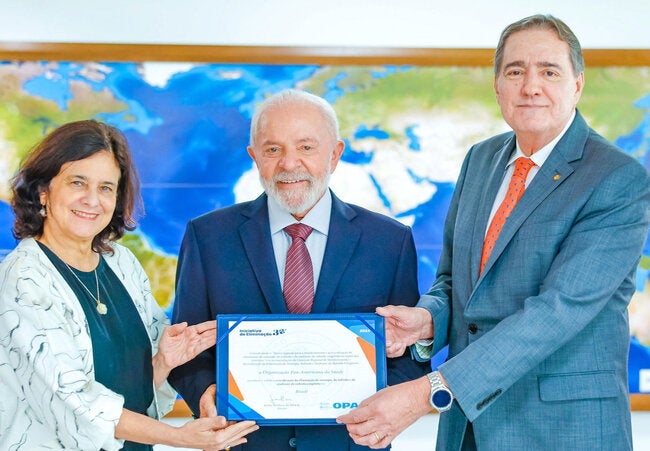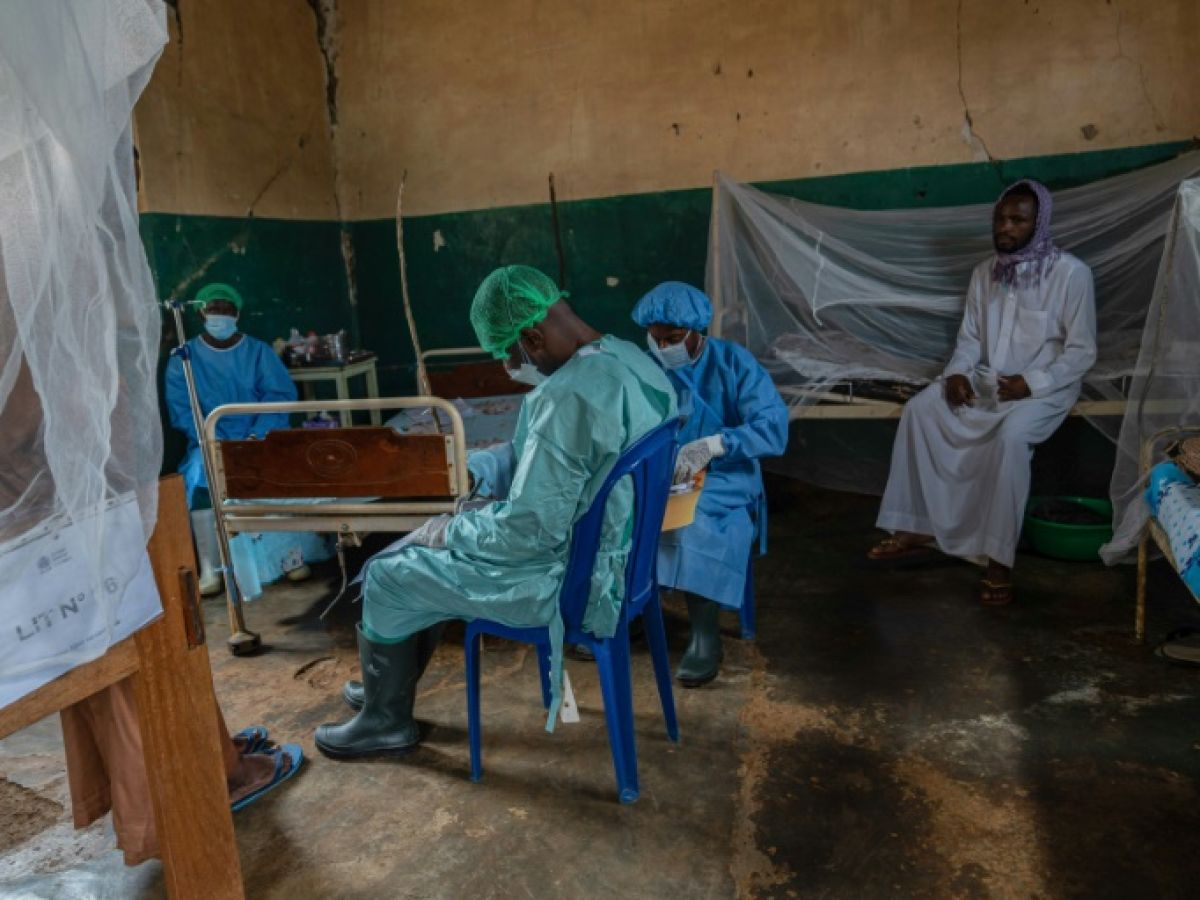
With this achievement, the Americas regain their status as a region free of endemic measles.
Brasilia, November 12, 2024 (PAHO) – The Director of the Pan American Health Organization (PAHO), Dr. Jarbas Barbosa, and the President of Brazil, Luiz Inácio Lula da Silva, confirmed today that Brazil has been re-verified as free of measles, rubella, and congenital rubella syndrome (CRS). This means that the Americas have now regained their status as a region free of endemic measles, a milestone first achieved in 2016.
“We congratulate Brazil on this significant achievement,” said Dr. Barbosa. “This effort reflects Brazil's strong commitment to public health and protecting its population from vaccine-preventable diseases. Measles not only impacts health but has devastating consequences for the economy and well-being of countries,” he stressed.
The re-verification was carried out by the Regional Commission for Monitoring and Reverification of Measles and Rubella Elimination, a group of independent experts convened by PAHO, which evaluated the evidence presented by Brazil.
A measles outbreak that began in 2018 led to the resumption of endemic measles transmission in Brazil in 2019, when more than 21,700 cases were reported. In response, the Ministry of Health, in coordination with state and municipal health professionals, implemented several measures. These included microplanning high-quality vaccination activities as part of the routine program, decentralizing molecular testing to identify the virus, and training rapid response teams. By June 2022, Brazil had recorded its last case of endemic measles.
To meet the reverification criteria, the country had to demonstrate that there had been no measles virus transmission for at least one year, in addition to strengthening its routine vaccination program, epidemiological surveillance, and rapid response to imported cases. MMR (measles, mumps, and rubella) vaccine coverage in Brazil increased from 81 % in 2022 to 87 % in 2023, and the country continues its efforts to reach the threshold of 95 % recommended by PAHO to ensure herd immunity and prevent epidemics.
During this period, Brazil, like other countries in the region, reported imported cases of measles, but the rapid response of the health system prevented the emergence of secondary cases.
Measles is a highly contagious viral disease that primarily affects children and can lead to serious complications such as severe diarrhea, ear infections, blindness, pneumonia, and encephalitis (inflammation of the brain). Some of these complications can be fatal. While measles continues to circulate in other parts of the world, the risk of reintroduction in the Americas persists, particularly among children who are not fully vaccinated.
In 2024, through November 8, more than 17,000 suspected cases of measles have been reported in the Americas, with 389 confirmed cases in eight countries. Most of these cases are imported or linked to importation, highlighting the importance of maintaining high vaccination coverage to protect the most vulnerable populations.
Thanks to Brazil's achievement, the Americas regained their status as a region free of endemic measles, a recognition first achieved in 2016. In addition to Brazil, Venezuela was re-verified as a region free of endemic measles in 2023, after the country re-established endemic transmission in 2018, following an outbreak that lasted more than 12 months. The other 33 PAHO member countries in the region maintained their elimination status.
PAHO emphasizes the importance of continuing to strengthen vaccination programs, increasing coverage to adequate levels, strengthening surveillance systems, and improving the capacity of health systems to respond quickly to possible imported cases.
“To maintain the elimination of measles and prevent future outbreaks, it is crucial to continue intensifying vaccination efforts, improving surveillance, and enhancing the capacity to respond quickly to imported cases,” concluded Dr. Barbosa.
The Americas also eliminated rubella and congenital rubella syndrome in 2015, an achievement that countries in the region have maintained ever since.
